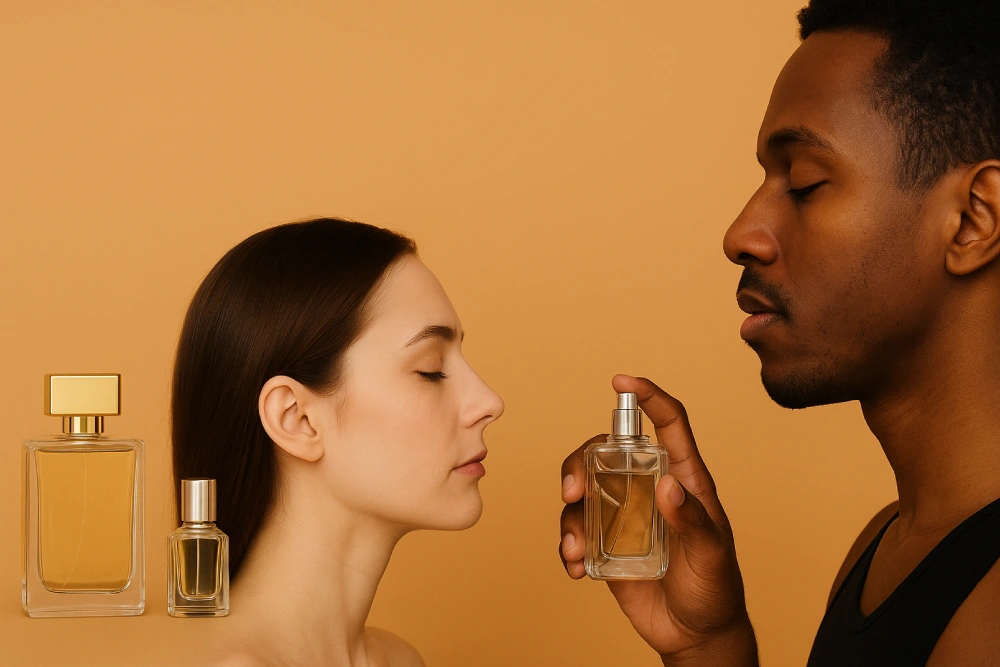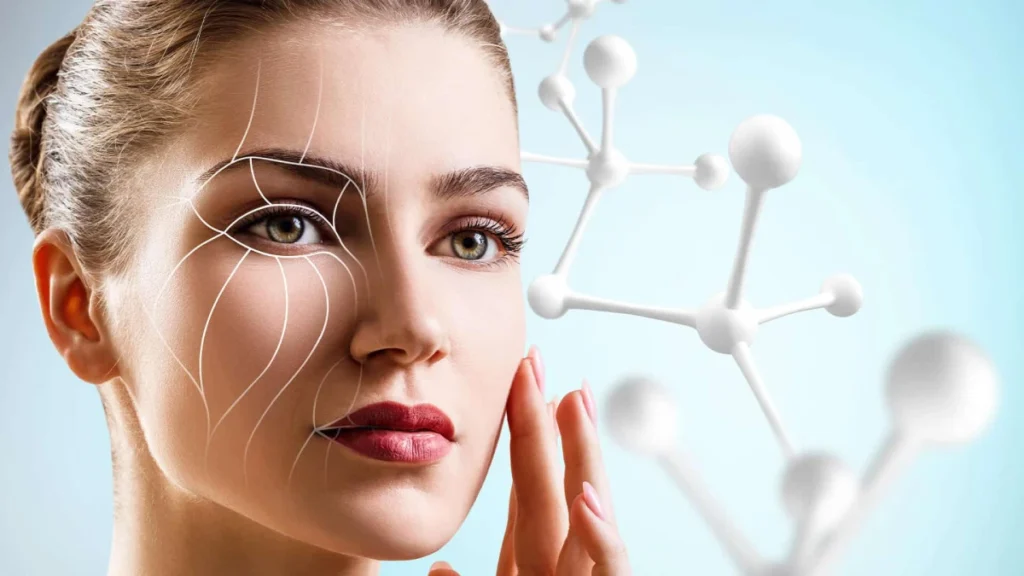
Have you ever bought a perfume because it smelled amazing on someone else—only to find that it just doesn’t work on you? Maybe it smells flat, or it doesn’t sparkle the way it did on them. This is one of the most common perfume dilemmas—and honestly, it’s more scientific than you might think.
So why do perfumes smell different on different people?
There isn’t just one answer. There are actually 20 reasons that explain this perfume mystery. These reasons fall under three categories:
- How you perceive scent
- How your skin interacts with the perfume
- Your environment and application habits
Let’s go through them.
Category 1: Perception – It’s All in Your Head (Sort Of)

1. Your Mood
Scent is closely tied to your emotions. Unlike sight or sound, smell bypasses your logical brain and goes straight to your emotional centers—like the amygdala and hippocampus. So if you’re anxious, relaxed, happy, or distracted, it can actually change how you experience a fragrance.
2. Emotional Associations
If you smelled a perfume on your friend, your feelings toward that person shape how you perceive the scent. Admire them? Think they’re stylish? That scent already has a positive association. But wearing it yourself might feel off—it’s almost like you’re wearing their identity.
3. The Setting
Where you first smelled the perfume matters. Was it at a formal event like a wedding? The perfume might’ve felt elegant in that setting, but when you wear it at home in your pajamas, it just doesn’t hit the same.
4. First vs. Second Time
The first time you smell something is always more impactful. It’s like remembering your first kiss, you rarely remember the second. The same goes for perfume. That magical first impression can’t always be recreated on your own skin.
Category 2: Skin Chemistry – Your Body Plays a Big Role

Despite the name, “skin chemistry” is often more about physics than actual chemical reactions. It’s about how the perfume interacts with your skin’s surface, oils, pH, and even your sweat.
5. Hormones and Sexual Status
Unpartnered men often have higher testosterone levels, which affects their body odor. Women’s scent can also shift during ovulation, making them smell more appealing to others—something our ancestors likely used to help with reproduction.
6. Health Conditions
Certain diseases change body odor. One woman detected Parkinson’s disease in her husband 12 years before diagnosis, just from scent alone. If illness can change your body odor, it can also change how perfume smells on you.
7. Emotional Stress
Strong emotions like fear and anxiety change the chemicals your body emits. That affects how perfume blends with your skin. One study showed that people could “smell” fear from sweat-soaked T-shirts.
8. Your Genes
Your immune system genes (specifically the MHC complex) affect your natural scent. People are actually drawn to different perfume profiles based on their genetic makeup—so your body might just be incompatible with the scent you liked on someone else.
9. Skin Microbiome
Your skin is covered in bacteria—this is your microbiome. It’s affected by the products you use, your environment, and even where you live. These bacteria interact with perfume molecules, changing how the fragrance develops on your skin.
10. Other Scented Products
If you use scented lotions, Vaseline, or even heavily fragranced hand creams (like L’Occitane shea butter), those smells will interfere with your perfume. Even shower gels can affect the final scent.
11. Moisturizer Usage
Moisturized skin holds onto perfume longer. Oils slow down evaporation, making base notes stronger. But dry skin causes perfume to vanish quicker and can emphasize sharp top notes.
12. Skin pH Level and Body Temperature
Where you apply your perfume matters. Your chest might be warmer and sweatier than your wrists. That difference in pH and temperature affects how your perfume behaves.
13. Skin Type: Oily vs Dry
Oily skin holds fragrance longer and boosts projection, especially with floral or citrus scents. Dry skin loses perfume faster but can amplify sharp notes. That’s why someone else’s fragrance might feel softer or more vibrant.
14. Your Diet
What you eat comes out through your pores. People who eat lots of fruits often have a more pleasant scent, while onions and garlic? Not so much. These background odors mix with your fragrance—and sometimes clash.
Category 3: Environmental Factors It’s Not Just You

15. Background Smells
Where you’re standing matters. If you first smelled the perfume near a coffee shop, bakery, or in a clean, open space, it likely mixed with ambient smells. But if you’re testing it later in a musty locker room, the experience will be totally different.
16. Weather and Climate
Perfume reacts differently in hot vs. cold or humid vs. dry air. Heat amplifies scent but can make it burn off quickly. Cold weather makes perfume more subtle and slows down projection. Even seasonal fragrance changes make a difference.
17. Wear Time
Did you smell the perfume on your friend after hours of wear? You were probably enjoying the dry-down (the long-lasting base notes). But when you try it on yourself, you might be reacting to the sharp top notes in the first 10 minutes.
18. Location of Dosage and Spray
Did your friend spray generously on their clothes while you did one tiny spritz on your wrist? Application matters. Perfume smells different on fabric vs. skin. More sprays are equal to stronger, fuller scent. Fewer sprays are equal to lighter and sometimes underwhelming.
19. Perfume Age, Storage, and Reformulation
Perfume changes with time, because perfume does expire. If your friend had an older batch or stored it improperly, it might’ve oxidized. Reformulations happen too, brands rarely admit it. You could be trying a newer version that smells slightly different due to ingredient changes or regulatory updates.
Everybody is Different
So the next time a fragrance smells better on someone else than it does on you, don’t blame your nose. Blame the 20 things you just read about. Perfume is a complex interaction between science and emotion. Everybody is different. That’s what makes perfume so personal, and so fascinating.
